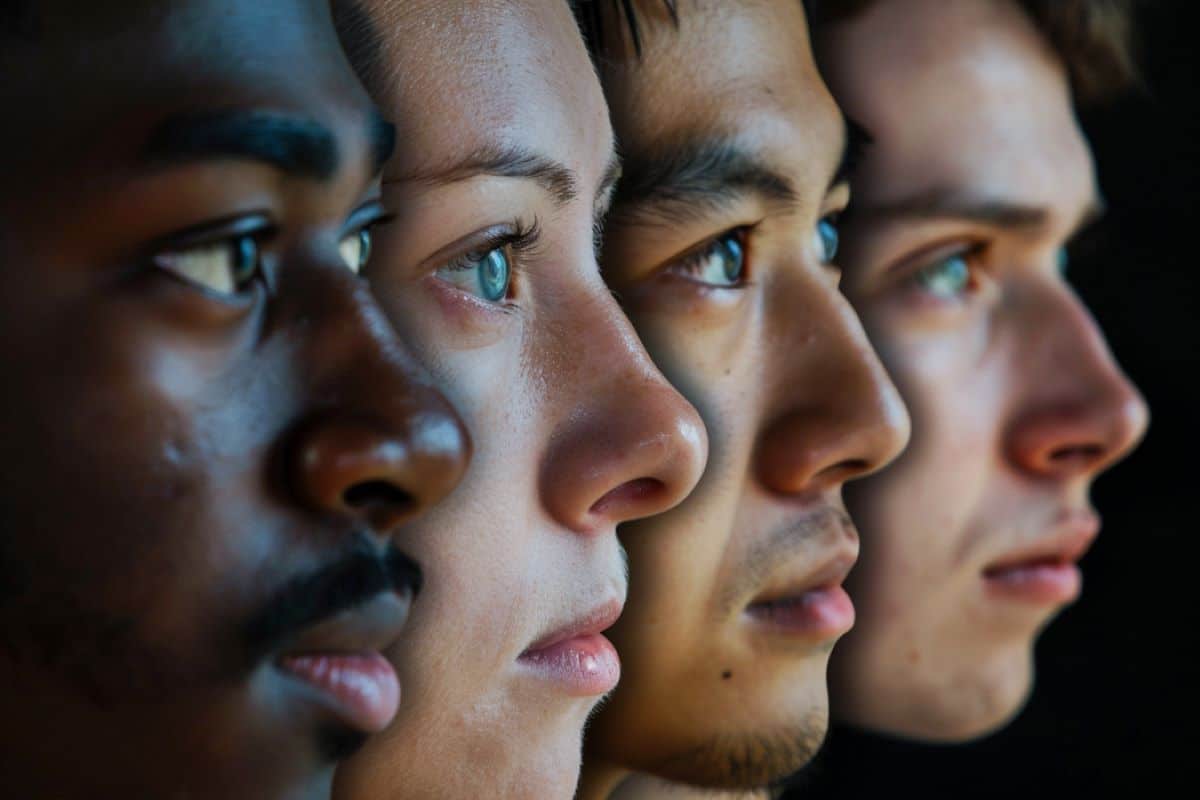Based on the methods, seems a stretch to say this isnt correlation alone
Yeah, just the wording of the title is a huge red flag.
I’m curious if “faces” are really just faces or shoulders up where hairstyles and clothes give clues.
Like, an a adult that goes by Bob, Bobby, or Robert looks different. And people would subconsciously account for age and what names were popular.
A lot of shit goes on behind the scenes and sometimes the conscious brain doesn’t know and makes up it’s own reason for why it decided something.
I don’t care which way the causation goes or whether it comes from the name choice and preferences of the parents (yea, bad title), what surprised me is that ML can predict a name based on a face at all, there should be no correlation in first place.
I disagree. Age biases the statistical likelihood of a name. Features that hint in any ethnic direction. Also some visible features might bias towards urban vs rural upbringing which also would also lean names in another direction.
Oh yea, baby name trends, ethnicity, I don’t know how heterogeneous the datasets they are using are when they mention the strength of the correlation, I was imagining it would distinguish a John from a Peter, but there could be a much lower correlation in that subset.
I’m gonna need a lot of concurring studies to accept this.
Also, did you know the shape of your skull can determine if you’re a criminal? /s
And now we know his name! Arrest him!
Hmm I’m not liking where this is going.
Going? Naw bud, it gone.
I’m changing my name to “Sexy”.
“bonk!”
Removed by mod
Even then, it gives just a little credence to those people who like to tell you that “You look like a Judy.”
Thanks for looking up the article, the headline is most likely wrong.
Not sure why this was removed for rule 1, as there was no attack on anyone’s person, it was entirely a criticism of the study.
Unless it was for describing journalists who refuse to provide direct references to the studies they write about as “fuckers”, in which case I can edit that part out once the comment is restored, even though it was not directed at any one person.
They say that they didn’t have pictures with religious affectations, and that they cropped pictures to show little hair.
But, in the example pictures, the vast majority of the woman’s hair is visible.
Maybe that’s what they were referring to?
I’m not bothering to open the study again, but from what I remember, the strong cropping was for the AI analysis. For the people, they cropped like in the example.
Oh, yeah, you’re right. Not cropped. I read that wrong:
Across the human social perceivers’ studies (Studies 1, 2, and 4A), the facial appearance of the targets in the images consisted of headshots cropped around shoulder height, and included facial accessories such as individuals’ hair, eyeglasses, and any subtle cosmetics they wore. To ensure that the hair is included in the image, facial images were cropped around shoulder height, occasionally including the top of the shirt in the frame, as depicted in Fig. 1. We did not include images of individuals wearing stereotypically recognizable accessories such as religious items.
So, sometimes articles of clothing and certainly makeup were present.
Removed by mod
You know the kind of research result where you go: “Well, no shit sherlock!” ?
This is the diametrical opposite of that…
Yea, peer review is (almost) dead.
Neuroscience News - News Source Context (Click to view Full Report)
Information for Neuroscience News:
MBFC: Pro-Science - Credibility: High - Factual Reporting: High - United States of America
Wikipedia about this sourceSearch topics on Ground.News
https://neurosciencenews.com/name-face-evolution-neuroscience-27492/







